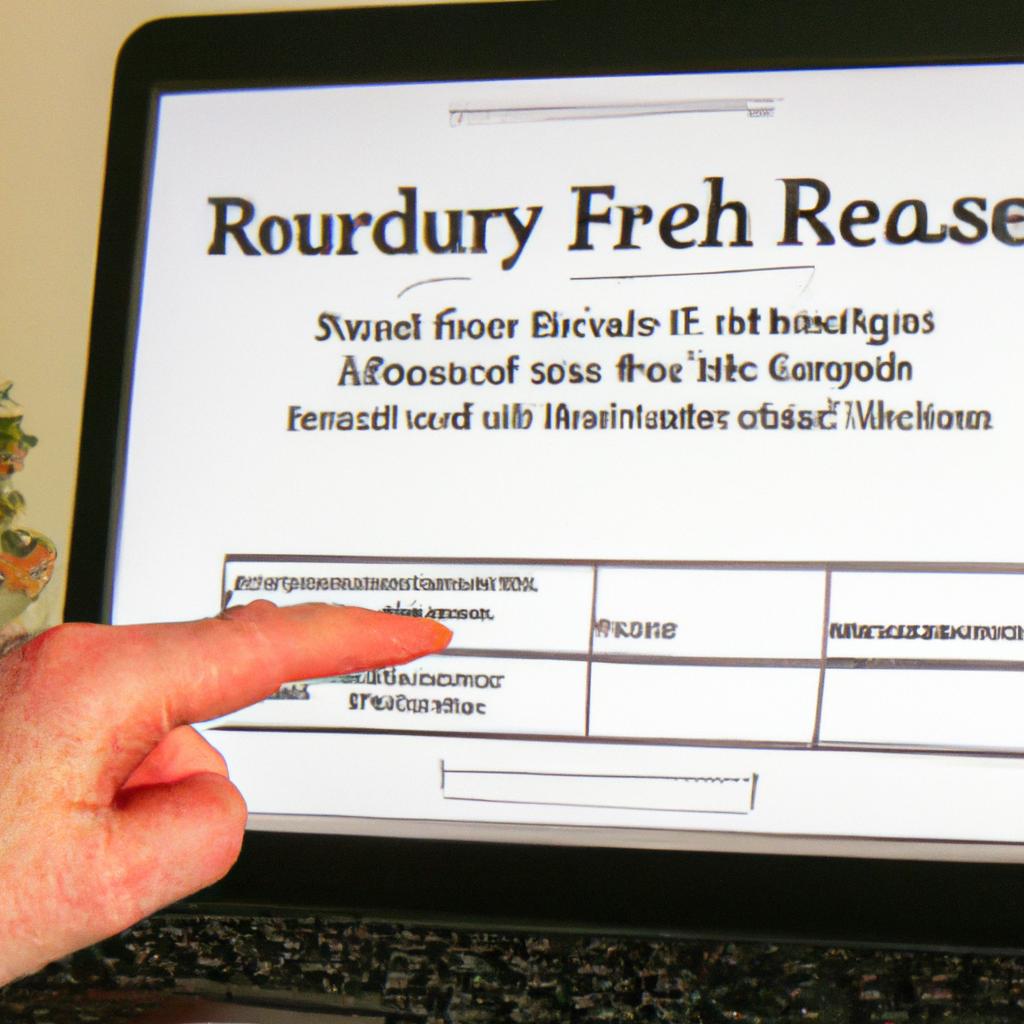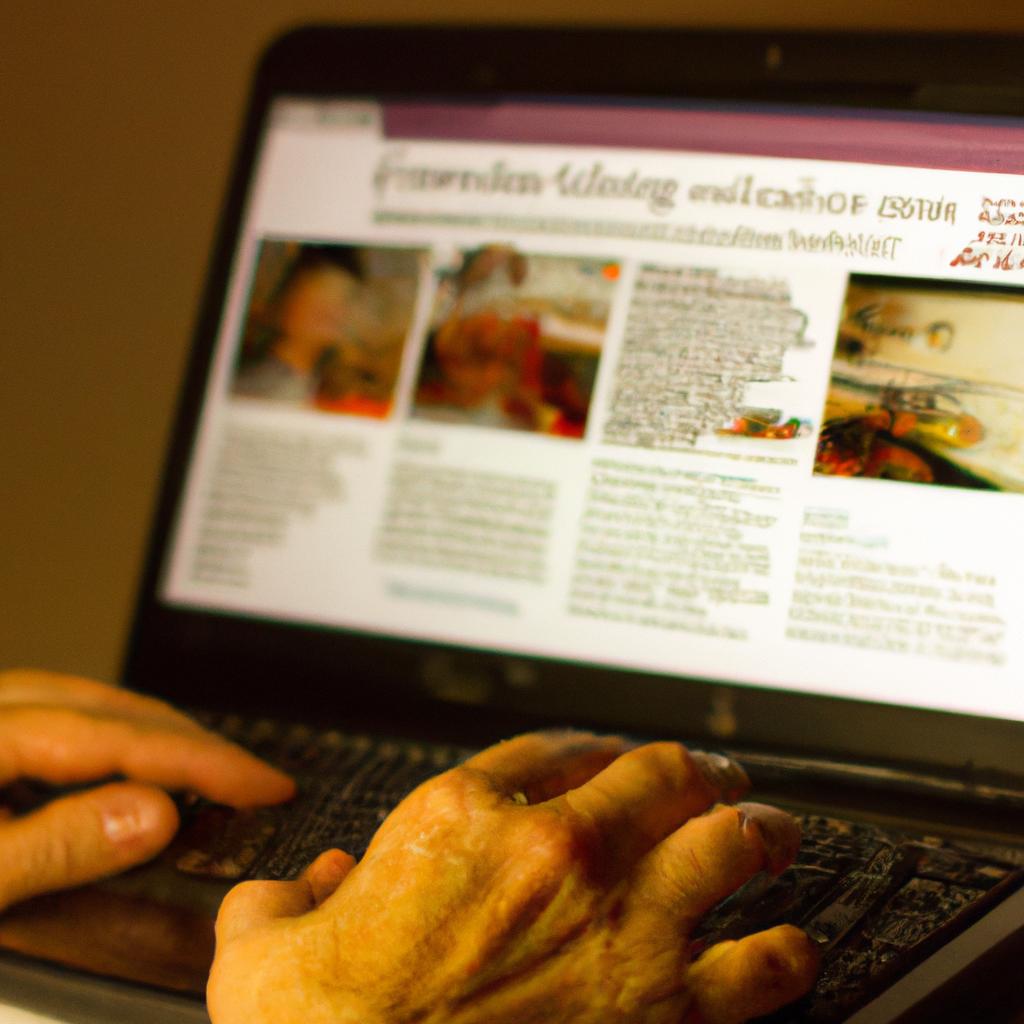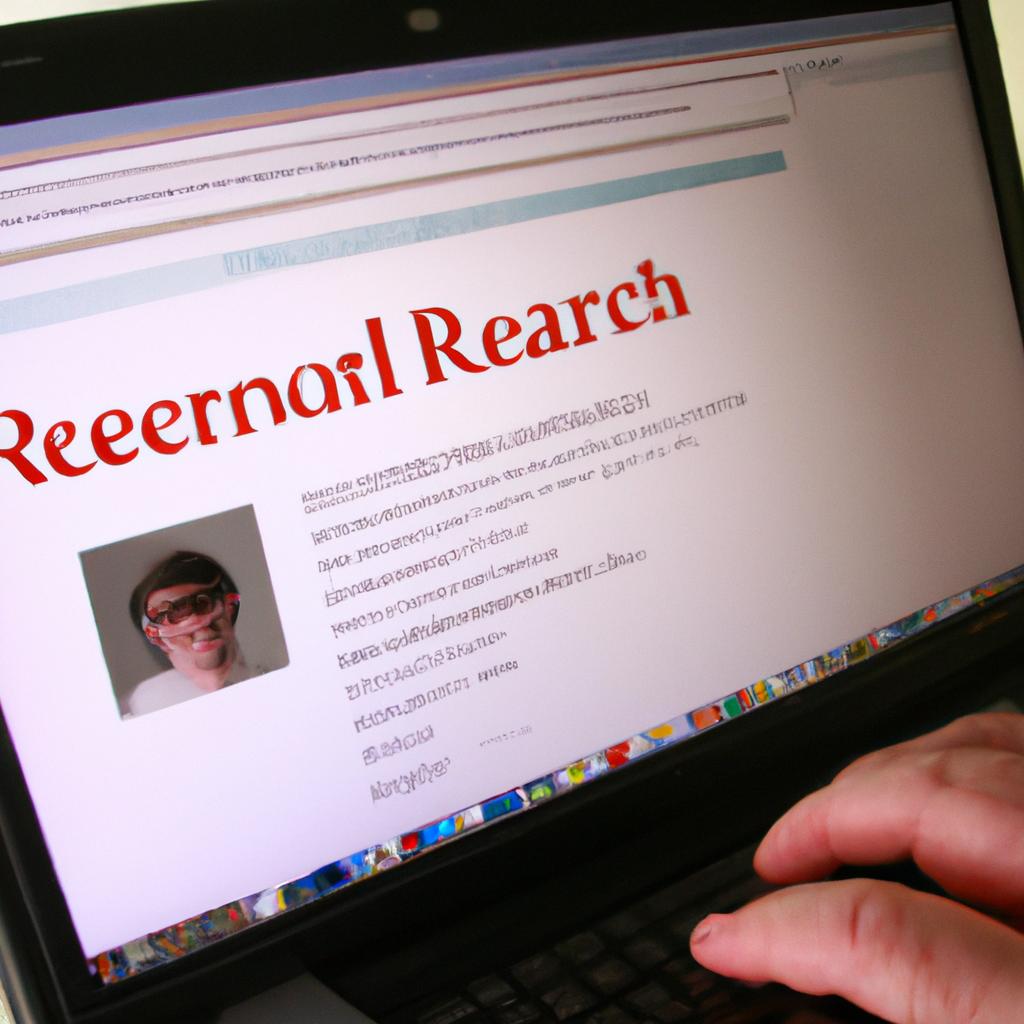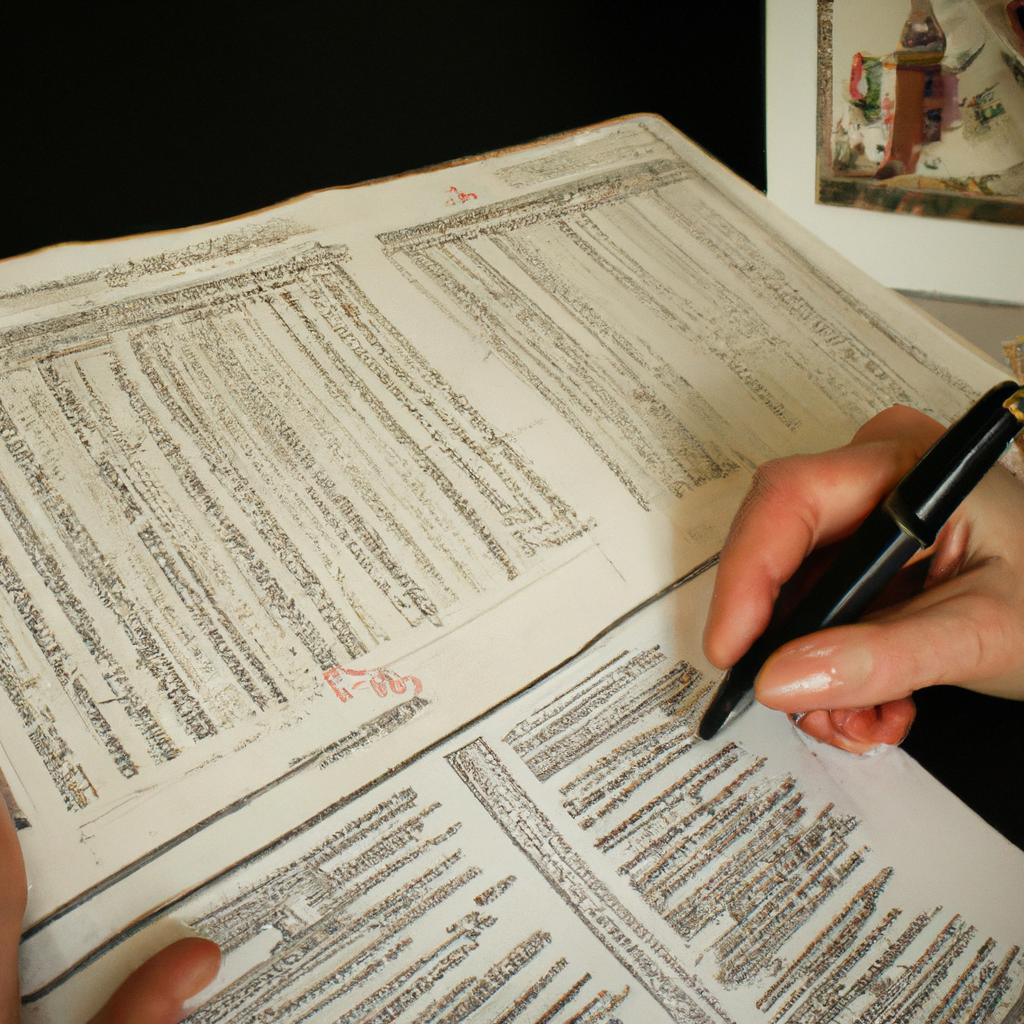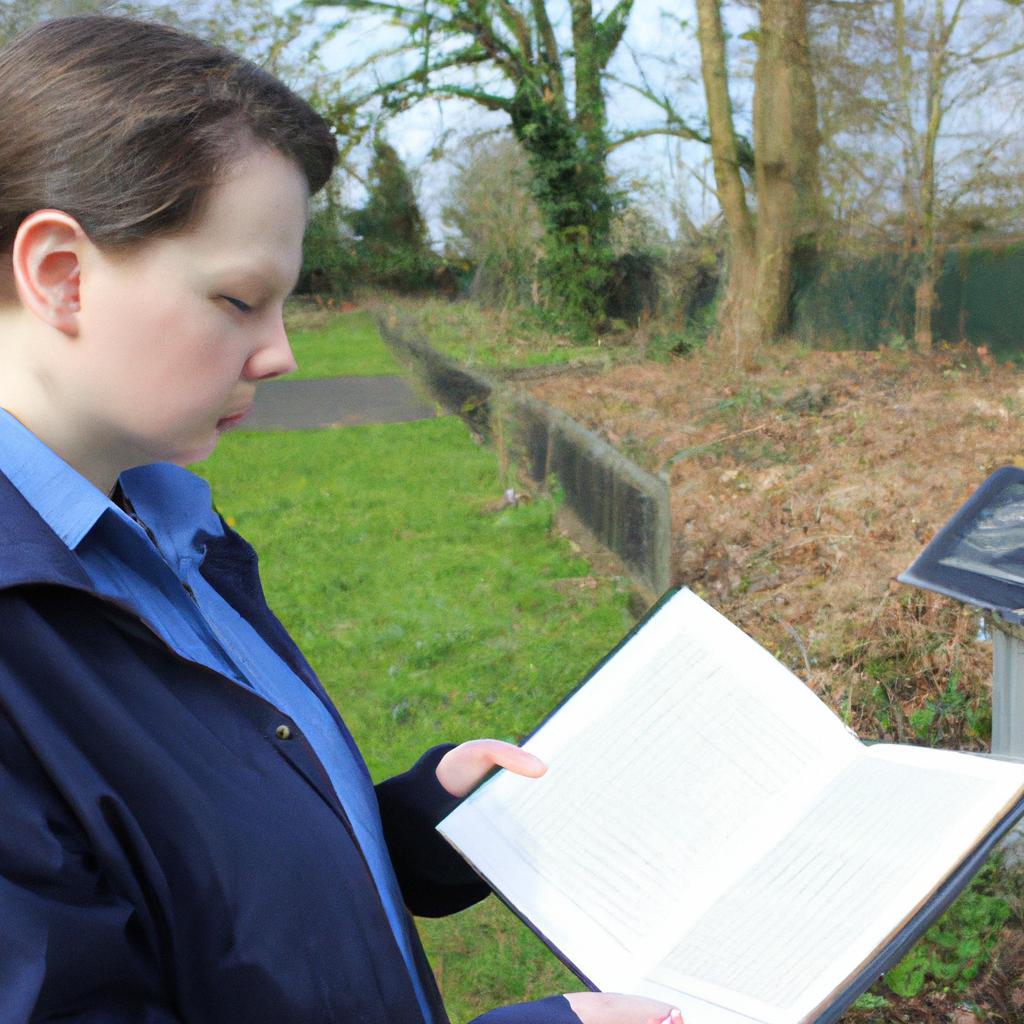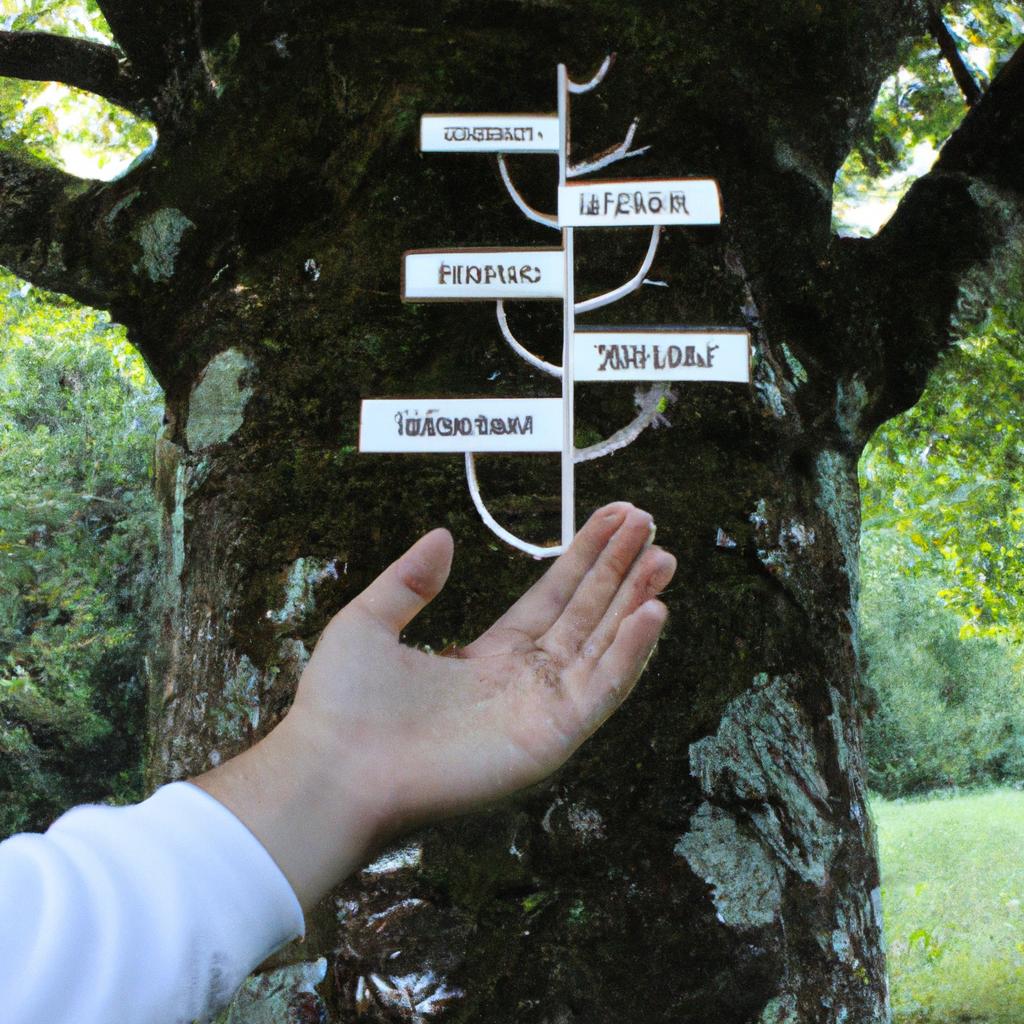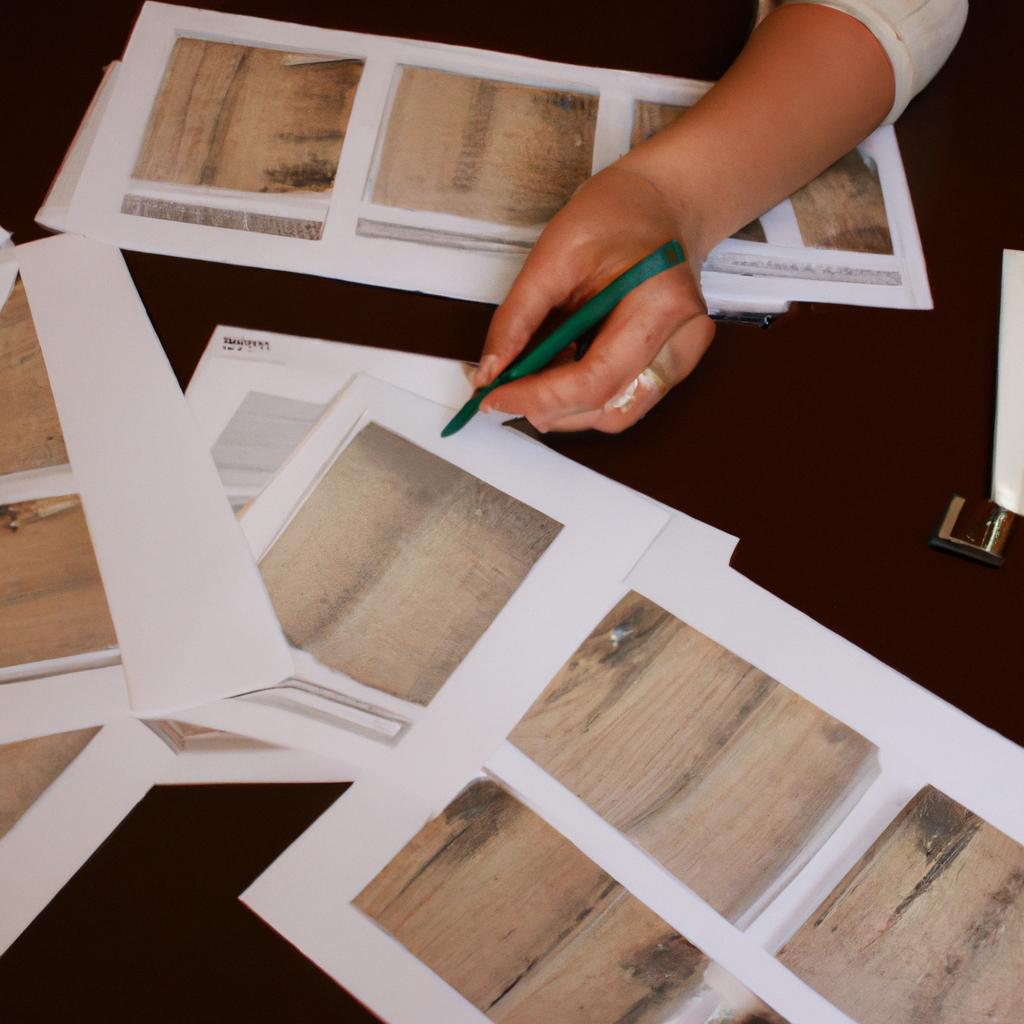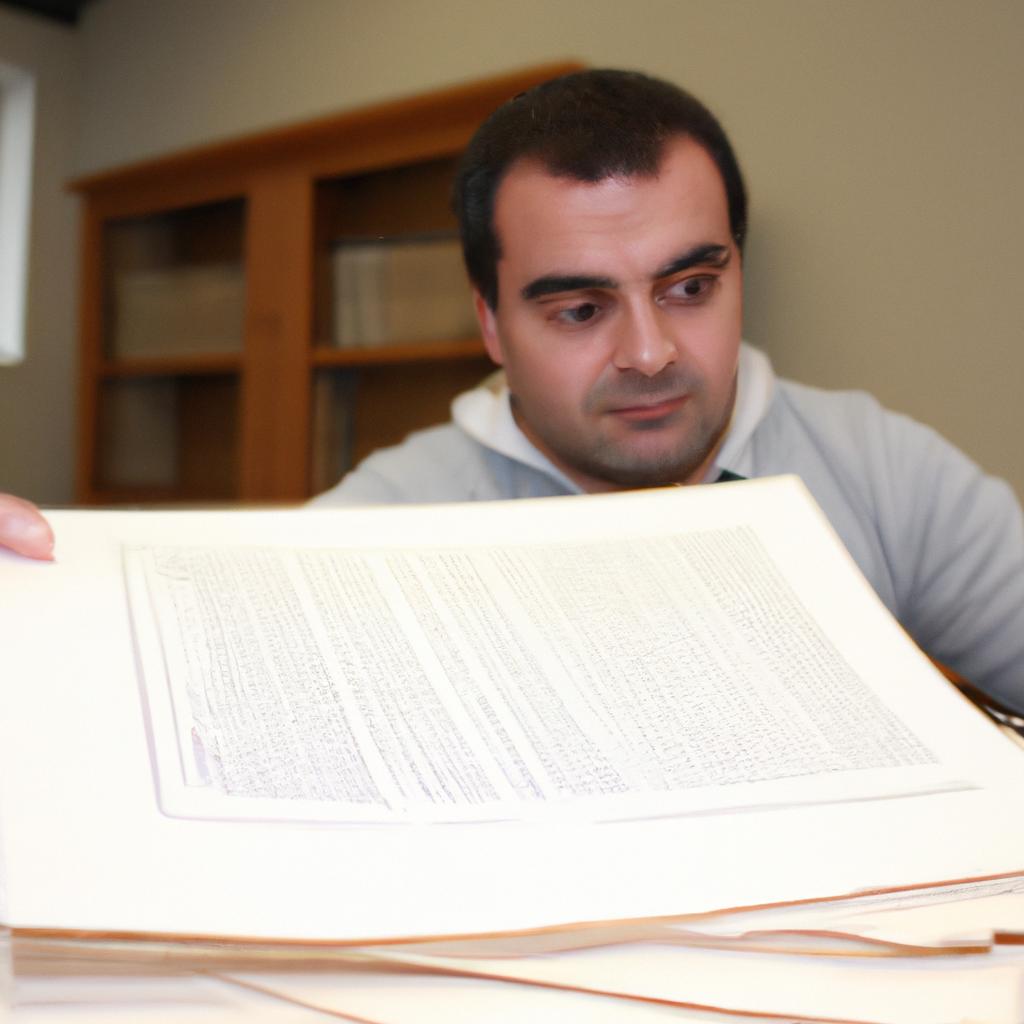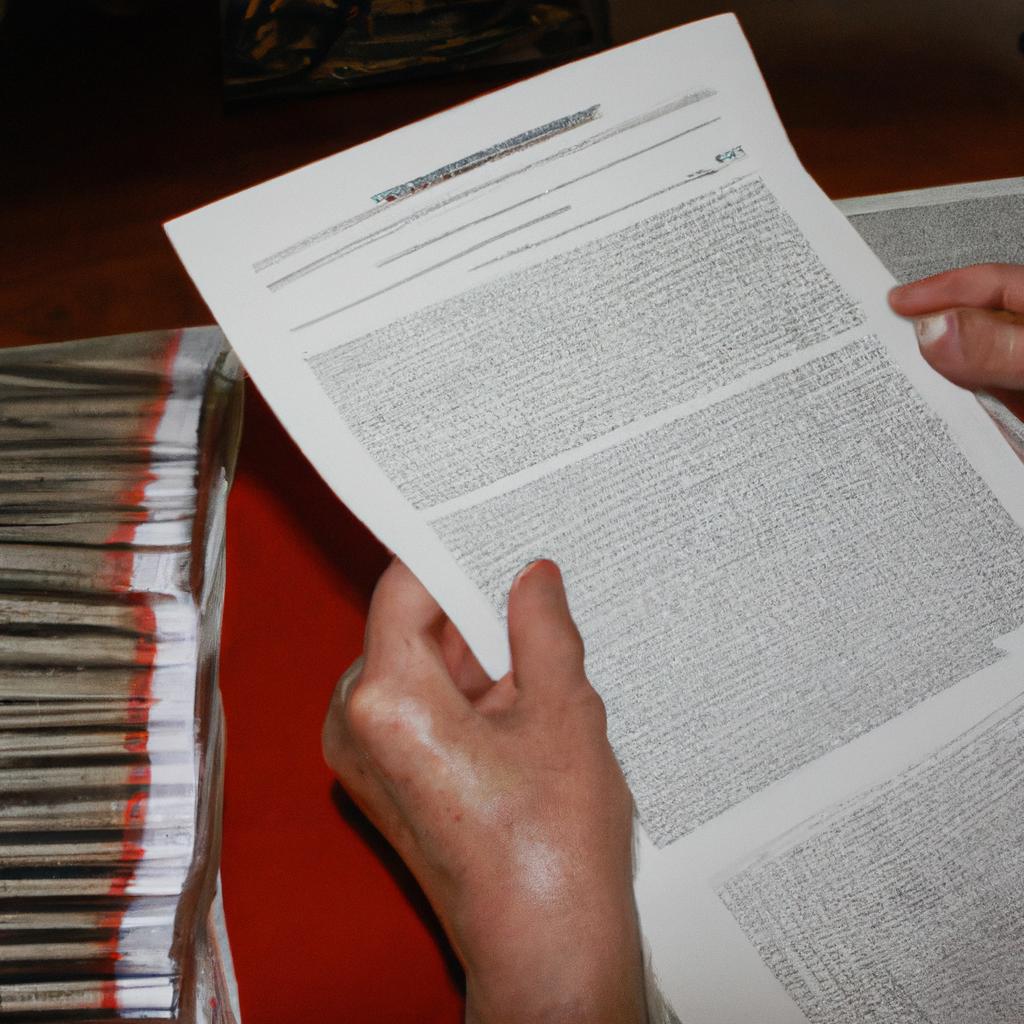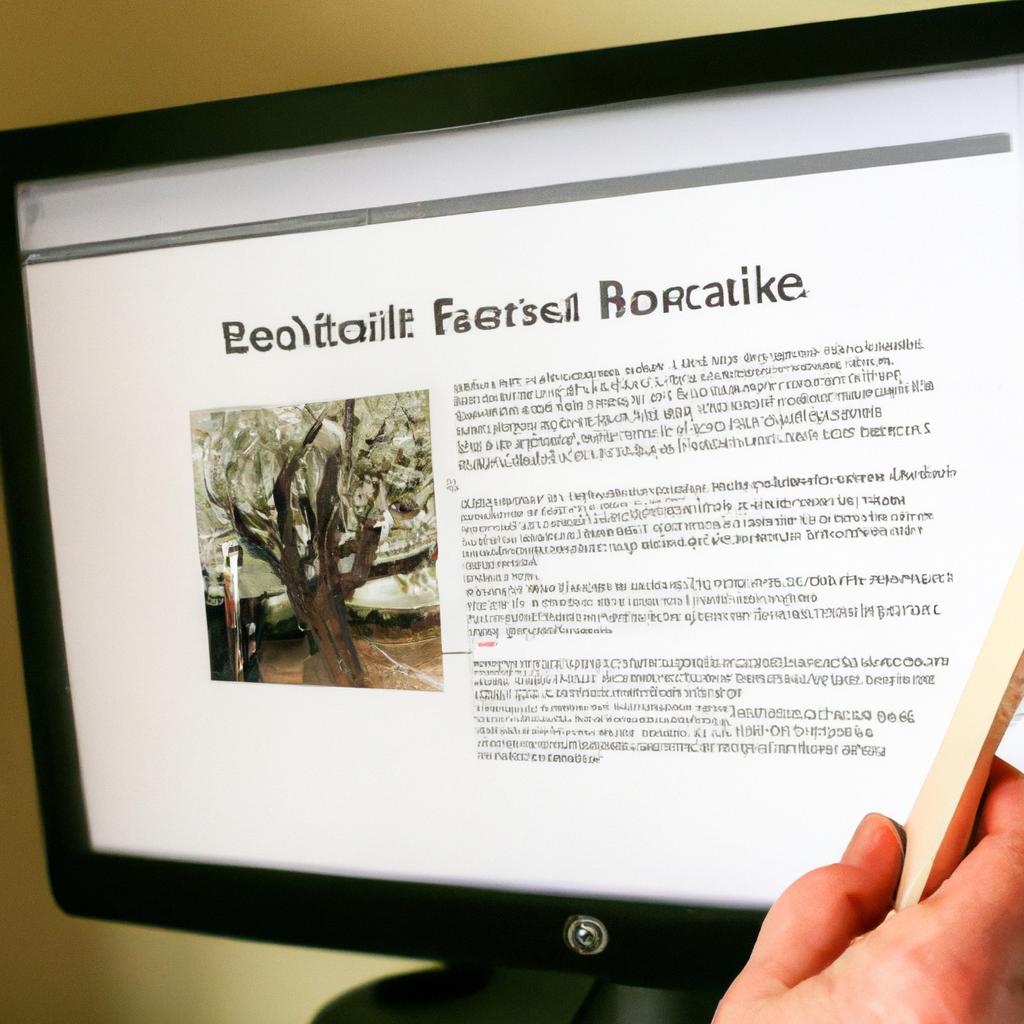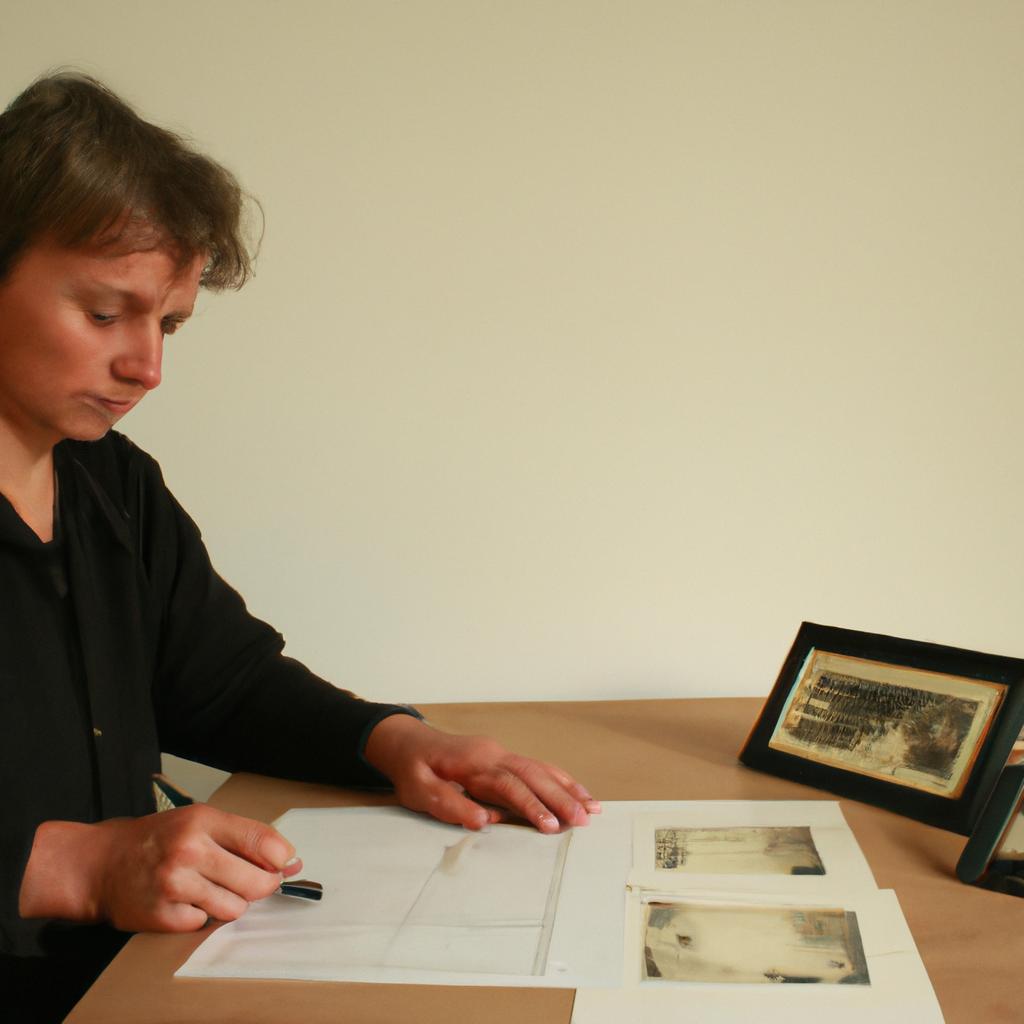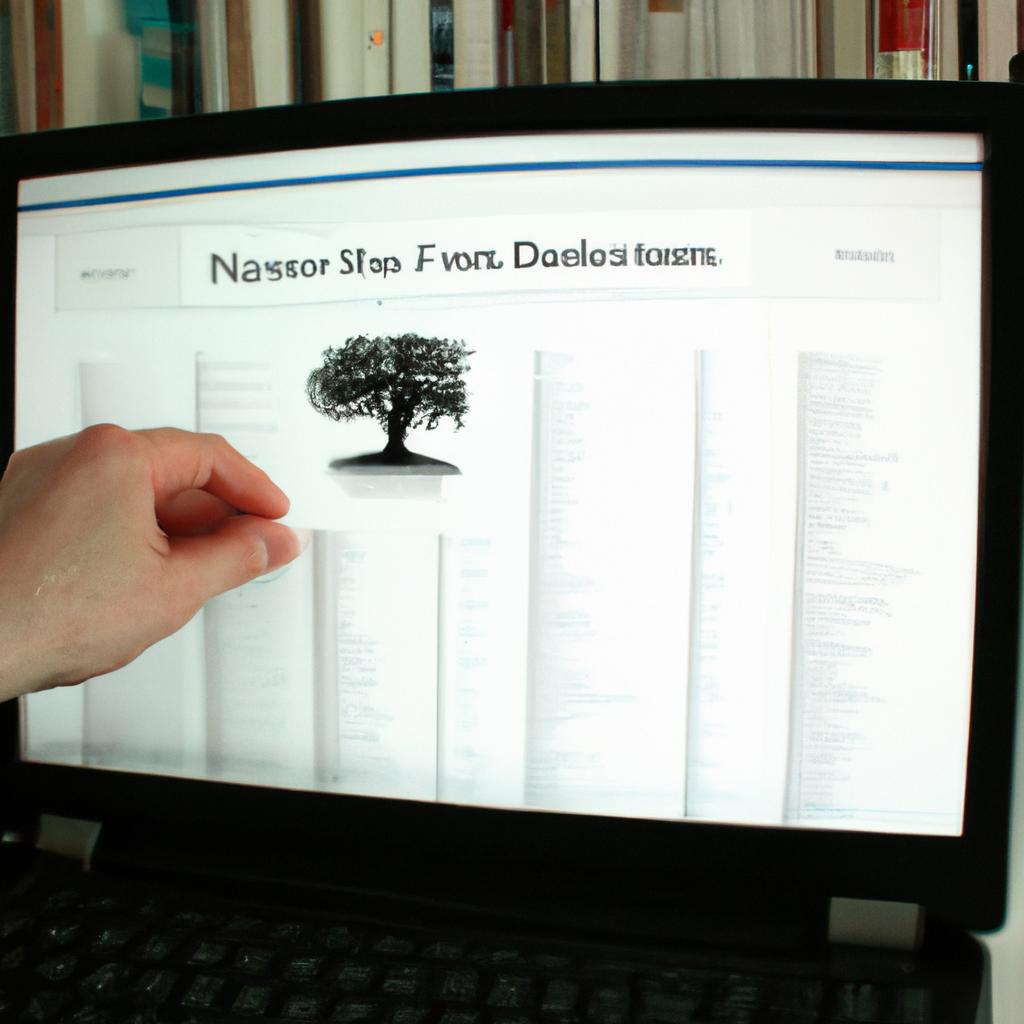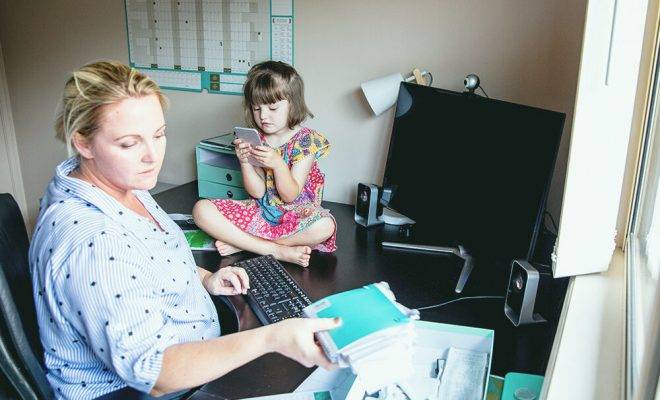Tracing one’s ancestry lineage has become increasingly popular in recent years, as individuals seek to uncover their roots and gain a deeper understanding of their family history. This pursuit of genealogical knowledge often requires specialized education and expertise in order to navigate the complex web of historical records, documentation, and DNA analysis. In this article, […]
Digital Archiving for Genealogy Education: Record Keeping Techniques
Digital archiving has become an indispensable tool in the field of genealogy education, facilitating efficient record keeping techniques that enhance research and preservation efforts. This article explores the significance of digital archiving for genealogical purposes, focusing on its ability to streamline data organization and accessibility. By examining a hypothetical case study involving a researcher’s quest […]
Source Analysis: Genealogy Education
Genealogy, the study of family history and lineage, has gained significant popularity in recent years. With the advent of online databases and digitized records, individuals have been empowered to trace their ancestral roots with greater ease and efficiency. However, as genealogical research becomes more accessible to the masses, it is crucial for enthusiasts to develop […]
Historical Context in Genealogy Education: Source Analysis
The study of genealogy involves more than simply tracing one’s family tree; it requires a nuanced understanding of the historical context in which our ancestors lived. Historical context refers to the social, political, economic, and cultural conditions that shaped individuals’ lives during specific time periods. By analyzing primary sources such as birth records, census data, […]
Record Analysis in Genealogy Education: Evidence Evaluation
Genealogy research plays a vital role in tracing one’s ancestral lineage and understanding the historical context of their family. However, this process can often be challenging due to the vast amount of information available and the need to critically analyze various records for accurate results. In order to achieve proficiency in genealogical research, individuals must […]
Military Records: Genealogy Education and Record Keeping
Military records are a valuable resource for individuals tracing their family history and genealogy. These records provide detailed information about the military service of ancestors, shedding light on their experiences during times of war or peace. For instance, consider the case study of John Smith, a researcher interested in discovering more about his great-grandfather’s involvement […]
Locating Family Documents: Genealogy Education Ancestry Assistance
In the quest to uncover one’s family history, locating and accessing family documents is of paramount importance. These invaluable historical artifacts provide a window into the past, shedding light on ancestral lineages, cultural traditions, and personal narratives. However, navigating through vast archives and repositories can be a daunting task for those embarking on their genealogical […]
Land Records: A Key Resource for Genealogy Education in Record Keeping
Land records are an invaluable resource for genealogists seeking to uncover their family history. With the abundance of information they provide, land records serve as a crucial tool in record keeping and genealogy education. For instance, consider the case study of John Adams, a descendant eager to trace his ancestry back several generations. By meticulously […]
Ancestry Assistance: Genealogy Education Explained
Genealogy, the study and tracing of one’s ancestry, has become an increasingly popular endeavor in recent years. With advancements in technology and access to vast amounts of historical records, individuals are now able to delve deep into their family history with greater ease than ever before. However, navigating through this intricate process can be daunting […]
Analyzing DNA Test Results in Genealogy Education: Research Techniques
In the field of genealogy education, analyzing DNA test results has emerged as a crucial research technique. By examining an individual’s genetic code, researchers are able to uncover valuable insights into their ancestral heritage and familial connections. This article will delve into the various techniques used in analyzing DNA test results within the context of […]
Documents: Key Factors in Genealogy Education: The Evidence
The field of genealogy education is crucial in helping individuals uncover their ancestral roots and construct accurate family trees. The utilization of documents plays a pivotal role in this process, as they serve as key sources of evidence for tracing lineage and verifying connections between generations. For instance, consider the hypothetical case study of John […]
Locating Ancestral Homelands: Genealogy Education Research Techniques
Locating ancestral homelands is a pursuit that has captivated individuals for generations. It serves as a means to connect with one’s roots, understand the historical context of family narratives, and gain insight into cultural traditions and customs. Genealogy education research techniques play a pivotal role in this endeavor by providing individuals with the tools and […]
Using Historical Records: Enhancing Genealogy Education with Research Techniques
Historical records serve as invaluable resources for genealogists seeking to uncover and understand their familial past. Through meticulous research techniques, these records provide a rich tapestry of information that enhances genealogy education. For instance, imagine a budding genealogist embarking on a quest to trace the ancestral roots of their family tree. By delving into historical […]
Census Records in Genealogy Education: A Guide to Effective Record Keeping
In the realm of genealogy research, census records serve as invaluable resources for tracing ancestral lineages and gaining insight into historical contexts. These records provide a wealth of information about individuals and families, offering glimpses into their occupations, residences, relationships, and even personal characteristics. However, effectively utilizing census records in genealogical education requires diligent record […]
DNA Testing in Genealogy: Ancestry Assistance Education
DNA testing has revolutionized the field of genealogy, providing individuals with a powerful tool to uncover their ancestral roots and connect with distant relatives. With advancements in technology, DNA testing has become more accessible and affordable, attracting an increasing number of people seeking to explore their family history. This article aims to delve into the […]
Corroboration in Genealogy Education: Evidence
Corroboration in genealogy education is a critical aspect of ensuring the accuracy and reliability of family history research. This article explores the concept of corroboration as it pertains to evidence in genealogical studies. By examining the importance of multiple sources, cross-referencing data, and verifying information through various means, researchers can establish a higher level of […]
Citation: Genealogy Education Evidence Evaluation
Introduction With the increasing accessibility of genealogical records and resources, individuals are increasingly drawn to uncovering their ancestral roots. However, the proliferation of online databases and information has raised concerns regarding the accuracy and reliability of genealogical research. In order to ensure that genealogy education entails comprehensive evidence evaluation, it is imperative for researchers to […]
Primary Sources in Genealogy Education: Source Analysis
Primary sources play a crucial role in genealogy education, providing valuable insights and information about ancestral lineages. The analysis of these primary sources is essential for accurately piecing together the puzzle of one’s family history. For instance, imagine a researcher delving into their ancestry to uncover the truth behind an old family rumor that claims […]
Documentary Analysis in Genealogy Education: Source Analysis
The field of genealogy has experienced a surge in popularity, with individuals eager to uncover their family history and heritage. In this pursuit, documentary analysis plays a crucial role as it enables researchers to extract valuable information from various sources. This article explores the significance of source analysis within the context of genealogy education and […]
Researching Family History: Genealogy Education and Ancestry Assistance
Researching family history and tracing one’s ancestry has become increasingly popular in recent years. With the advent of online databases, DNA testing, and genealogy software, individuals now have more resources than ever to explore their roots and learn about their familial heritage. However, navigating through this vast amount of information can be overwhelming for those […]
Family Bibles: Genealogy Education and Record Keeping
Family Bibles have long served as treasured heirlooms, preserving the history and lineage of generations past. These sacred books not only hold religious significance but also serve as valuable sources for genealogical research, offering a wealth of information about family connections, dates of birth, marriages, and deaths. For instance, consider the hypothetical case study of […]
Record Keeping: Genealogy Education
In the pursuit of understanding one’s ancestral heritage, genealogy education plays a crucial role in providing individuals with the necessary skills and knowledge to navigate through historical records. Record keeping serves as the backbone of genealogical research, allowing researchers to piece together their family history by examining various types of documents such as birth certificates, […]
Historical Newspapers in Genealogy Education: Documentation Essentials
Historical newspapers play a crucial role in genealogy education, providing valuable documentation essentials for researchers and enthusiasts alike. Through the examination of these primary sources, individuals can uncover a wealth of information about their ancestors’ lives, shedding light on historical events, social conditions, and personal narratives. For instance, consider the case study of John Adams, […]
Inferential Reasoning in Genealogy Education: Evidence
Inferential reasoning in genealogy education has become an essential tool for researchers seeking to uncover hidden connections and unearth ancestral histories. By employing deductive and inductive reasoning techniques, individuals can draw meaningful conclusions from disparate pieces of information, thereby enriching their understanding of family lineages. For instance, consider a hypothetical case study involving a genealogist […]
Documentation and Citation: Enhancing Genealogy Education and Research Techniques
The study and practice of genealogy, the research and tracing of one’s ancestry, have seen a significant rise in popularity over recent years. With advancements in technology and the ever-increasing availability of online resources, individuals are now able to delve deep into their family history with greater ease than ever before. However, amidst this surge […]
Sources: Genealogy Education: Evidence Evaluation
The field of genealogy education is an essential aspect of preserving and understanding one’s family history. It involves the study and analysis of various sources to gather evidence that supports or refutes ancestral connections, dates, and other vital information. This article explores the significance of evidence evaluation in genealogy education, highlighting its role in ensuring […]
Genealogical Records: Genealogy Education and Ancestry Assistance
Genealogical records serve as a fundamental resource for individuals seeking to explore and understand their ancestral heritage. With the advancements in technology and the increasing popularity of genealogy research, there is a growing need for education and assistance in navigating these vast repositories of information. This article aims to delve into the significance of genealogy […]
Finding Genealogy Resources: Ancestry Assistance for Genealogy Education
Genealogy, the study of family history and lineage, has gained significant popularity in recent years. With advancements in technology and access to vast amounts of historical records, individuals are now able to trace their ancestral roots with greater ease and accuracy. However, navigating through the multitude of genealogy resources available can be overwhelming for beginners. […]
Oral Histories in Genealogy Education: Record Keeping Essentials
Oral histories serve as valuable sources of information in genealogy education, aiding researchers in uncovering the rich tapestry of their family history. By conducting interviews with older family members or community elders, individuals can gather insights and personal narratives that may not be found in traditional records alone. For instance, imagine a researcher delving into […]
Oral History: A Key Tool for Genealogy Education and Documentation
Oral history serves as a crucial tool for genealogy education and documentation, providing invaluable insights into the lives and experiences of individuals across generations. Through the collection and preservation of personal narratives, oral history offers an opportunity to bridge gaps in historical records and gain a deeper understanding of family heritage. For instance, imagine a […]
Online Research Resources in Genealogy Education: Research Techniques
One of the most significant challenges in genealogy research is accessing reliable and comprehensive resources. As technology continues to advance, online research resources have become increasingly valuable in genealogy education. This article seeks to explore the various techniques utilized when conducting online research for genealogical purposes. Imagine a scenario where an individual discovers a mysterious […]
Secondary Sources: Genealogy Education through Source Analysis
Secondary sources play a crucial role in genealogy education, as they provide valuable insights and analysis of primary source materials. Through the process of source analysis, genealogists can gain a deeper understanding of their ancestors’ lives and uncover hidden connections within their family tree. This article aims to explore the significance of secondary sources in […]
Collaborative Research Projects: Genealogy Education and Research Techniques
Collaborative research projects have become increasingly popular in the field of genealogy education and research techniques. This approach involves a collective effort by multiple individuals, often from diverse backgrounds, to explore and uncover family histories. By pooling resources, skills, and expertise, collaborative research endeavors aim to enhance knowledge and understanding of genealogy while providing a […]
Archival Sources: Genealogy Education and Documentation
The pursuit of genealogy has gained significant popularity in recent years, with individuals seeking to uncover their ancestral roots and understand the rich tapestry of their family history. In this age of technology and digital databases, it is easy to overlook the importance of archival sources in genealogy education and documentation. Archival sources refer to […]
Evidence: Genealogy Education Essentials
Genealogy, the study of family history and lineage, has gained significant popularity in recent years. With advancements in technology and the increasing availability of genealogical records online, individuals are now able to trace their roots with greater ease than ever before. However, despite this surge in interest, many aspiring genealogists often struggle to navigate the […]
Genealogy Education: The Power of Documentation
Genealogy, the study of family history and lineage, has gained significant popularity in recent years. With the advent of technology and digital platforms, individuals have become more inclined to trace their roots and uncover their ancestral heritage. However, delving into genealogical research requires a comprehensive understanding of the importance of documentation. By examining one specific […]
Research Techniques: Genealogy Education
Genealogy, the study of family history and lineage, has become an increasingly popular field of research in recent years. With the advent of technology and online databases, individuals now have unprecedented access to vast amounts of historical records and documents that can aid them in tracing their ancestry. However, despite this wealth of information, many […]
PRIVATE MORTGAGE OR PRIVATE LINE OF CREDIT SCORE
We need to show you how to make higher knowledgeable selections. Sure hyperlinks on this web page – clearly marked – might take you to a associate web site and will result in us incomes a referral fee. For extra data, see How we generate income. Private loans and private strains of credit score are two […]



